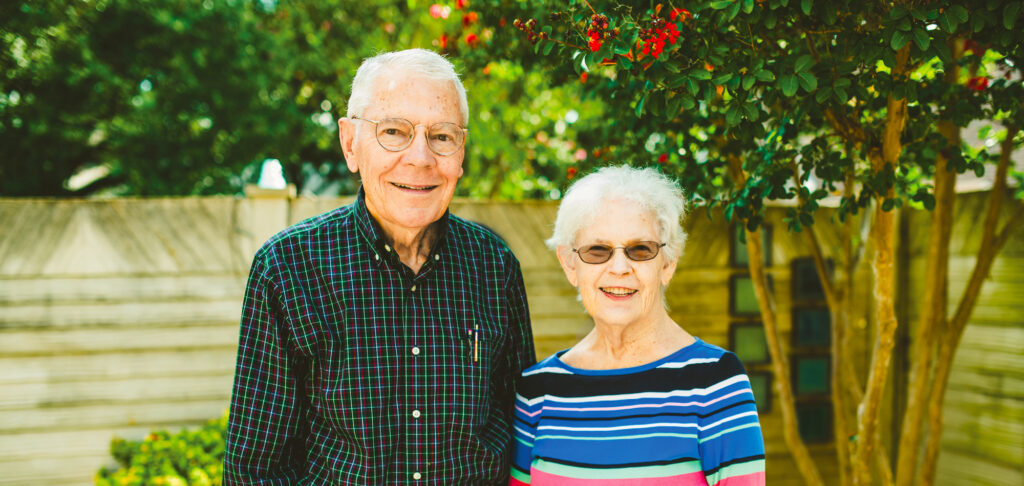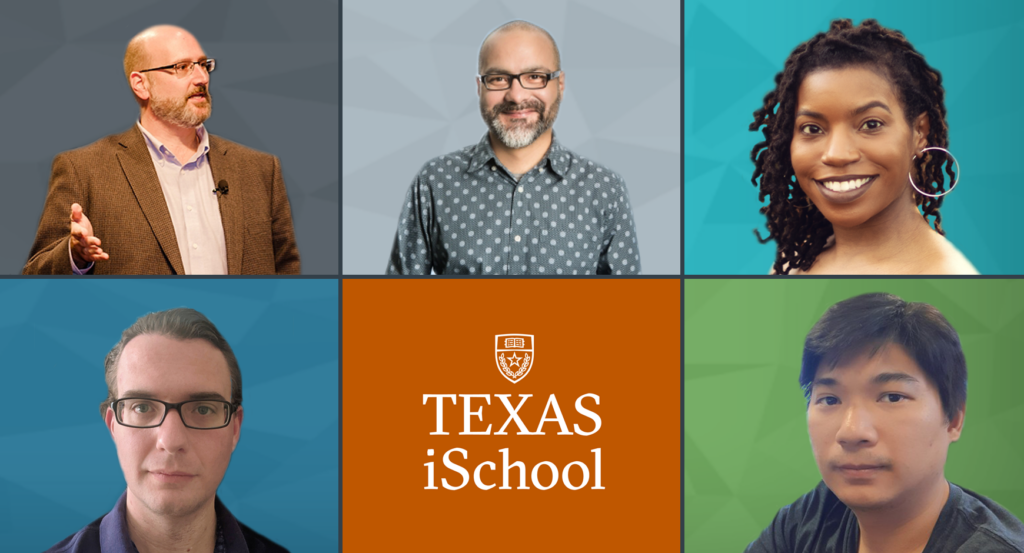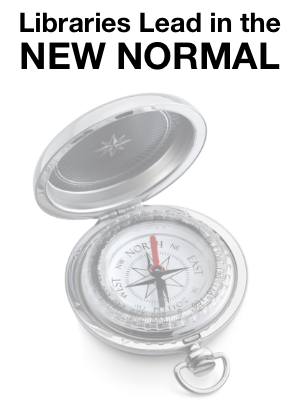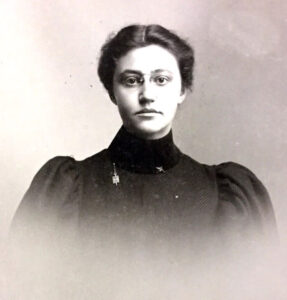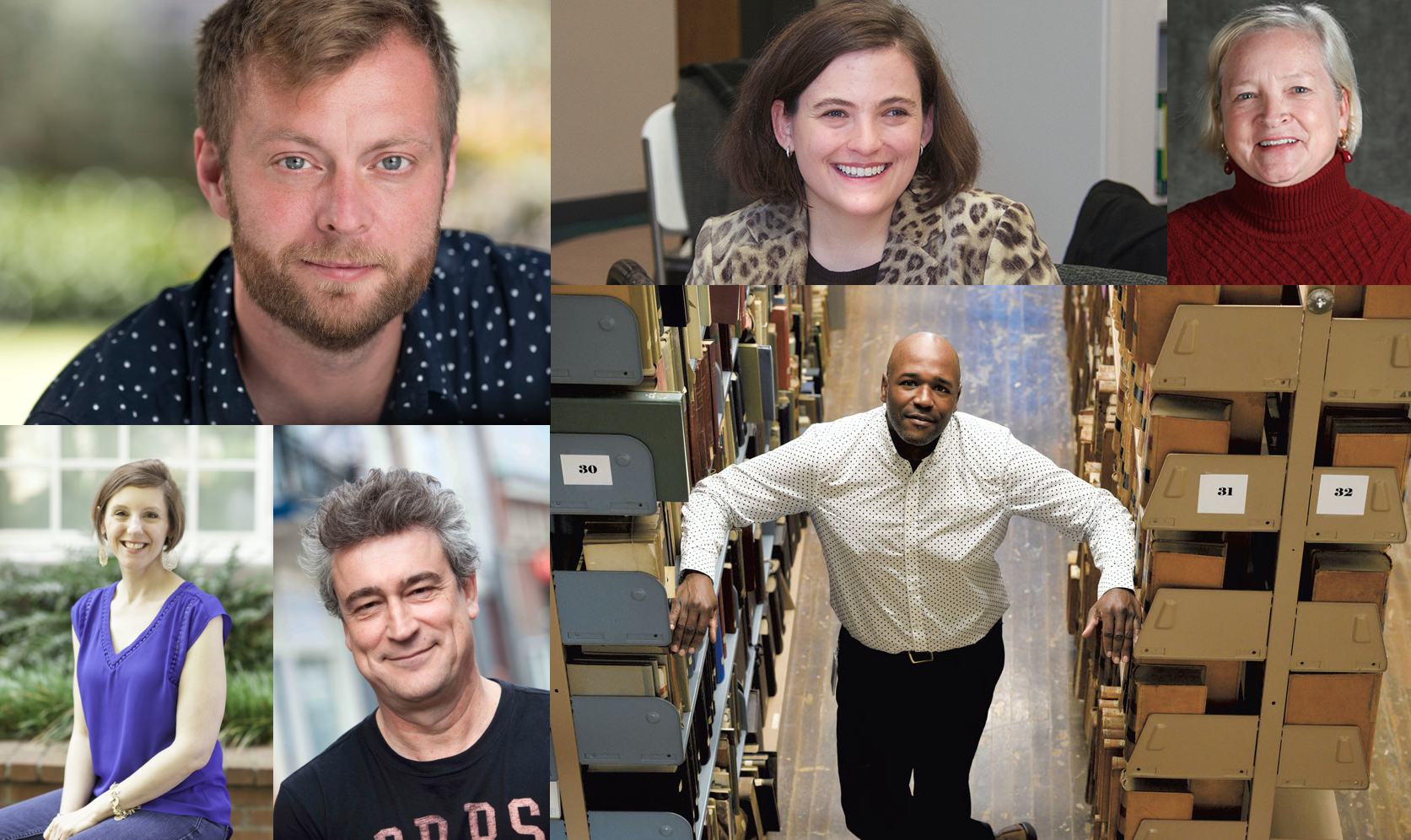This month the Board of Trustees approved a name change for the School of Library and Information Science to the School of Information Science. This post is the memo created by the faculty of the school requesting the change, documenting the process that led to the name change, and outlining a continued commitment to librarianship.
TO: Dean Tom Reichert
FROM: The Faculty of the School of Library and Information Science
RE: School Name Change
DATE: January 10, 2020
With this memo we are formally requesting the Board of Trustees change the name of the School of Library and Information Science to the School of Information Science. The request is made for several reasons:
- To reflect the expanding academic and research programs of the school beyond the master’s of library and information science
- To solve internal and external confusion identified in the College of Information and Communications strategic planning process, particularly as it relates to the university library
- To reflect trends in peer library and information science programs at other universities
On December 7, 2019 the faculty and staff voted to change the name of the school with a vote of 16 yay, 5 nay, and 2 abstentions. A second vote then approved the name “School of Information Science,” 9 yay, 8 nay, 2 abstentions.
This comprehensive memo outlines the process of eliciting feedback from the school’s key stakeholder groups including current students, alumni, and employers of our graduates. This memo also outlines key issues identified in changing the name and corresponding responses. Finally, the memo seeks to make clear the commitment of the school to librarians and the libraries they run.
Why a Name Change
The issue with the current name of the school can be put simply as “people think we are either the university library, or that all we prepare are librarians.” The brand of library is strong, and due to the efforts of school faculty, getting stronger. Unfortunately, that brand is so strongly centered on functioning libraries, that people have a hard time seeing a school of library and information science as an academic endeavor that investigates: areas of librarianship, education, data, knowledge management, archives, records management, social media, user experience design, and strategic use of information in a business context.
- To reflect the expanding academic and research programs of the school beyond the master’s of library and information science
The School of Library and Information Science currently offers a nationally ranked master’s in library science, a certificate program in school librarianship, a certificate of graduate study in health communication (an interdisciplinary certificate administered by the Department of Health Promotion, Education, and Behavior; the School of Journalism and Mass Communications; and the School of Library and Information Science), and a specialist program in library and information science. It also offers a growing bachelor’s of science in information science and a Ph.D. in library and information science. We are currently developing new programs with the School of Journalism and Mass Communications in data, media, and society at the graduate and undergraduate levels.
The undergraduate program prepares information workers and knowledge management experts for industry. Information science graduates connect people, technology and business objectives. Our undergraduates obtain jobs with employers such as AgFirst Financial, Colonial Life, IBM, and government agencies. They take positions with titles such as data analyst, knowledge manager, systems analyst, web developer, or information architect and several go on to graduate school, including our own program in library science. Our Ph.D. graduates go into faculty positions in information and business schools in addition to research and practice-based roles in archives, museums, and the information technology industry.
Our current faculty conduct research related to all types of libraries. They also explore important issues related to big data in the health industry; information use in faith-based organizations; universal design; diversity, equity, inclusion, and social justice; copyright, publishing, and scholarly communication; community engagement and outreach services; issues related to literacy; technology and technology-enabled learning; fake news; knowledge management; and social, political, and theoretical implications of information access and use. Our faculty seek funding from multiple agencies such as the Institute of Museum and Library Services, the U.S. Department of State, the National Science Foundation, the Knight Foundation, the World Intellectual Property Organization, and the Hearst Foundation. Faculty also seek and receive internal university funding in the areas of data mining and were very active in studying the impacts of natural disaster following the Columbia flooding. Faculty attend prestigious conferences in information science, computer science, health sciences, instructional technology, and entrepreneurship in addition to librarianship. The proposed name, School of Information Science, reflects these broader efforts.
- To solve internal and external confusion identified in the College of Information and Communications strategic planning process, particularly as it relates to the university library
Over the past 4 years, it has become increasingly clear that while library science students are able to seek out the required graduate program to become librarians regardless of the name of the school (through listings of programs certified by the American Library Association, U.S. News and World Report program rankings, alumni and so forth), undergraduate students do not engage in such a targeted search. Instead, students exploring our bachelor’s in information science become confused, believing the undergraduate program only prepares librarians. It does not. There are no accredited library programs at the undergraduate level and there is no requirement for an information science undergraduate degree to get into our master’s program.
Likewise, faculty and administrators within the university have mistakenly assumed we are part of the Thomas Cooper Library. In addition to numerous anecdotes, it is most clearly seen in EAB, the academic analytics system the university uses. LIBR course prefixes are included in data on the school even though LIBR is the prefix for courses offered by the university library, not SLIS.
As much as we have worked to communicate the scope of the information science program to advisors at the university level, in other colleges, and at the honors college, high turn-over of advisors means that undergraduates are regularly told to take our major if they want to become librarians. People simply can’t get past the word library in our current name to see the full scope of what we offer.
- To reflect trends in peer library and information science programs at other universities
This problem with naming is not unique to the University of South Carolina. The past decade has seen the rise of the iSchool movement[1]. iSchools are information science academic units (colleges and schools). Most have library science programs, but some do not. The iSchool Consortium is a group of schools from universities working primarily to clearly articulate what schools of information science offer. The iSchool Consortium, of which we are a member, works on international marketing programs, and seek to create greater awareness of information programs within the universities that offer them.
This movement is most evident when looking at the U.S. News and World Report rankings of library and information science programs. Of the 64 accredited programs listed by ALA, only 12 have the word library in their name. Of the top 10 ranked programs there is only one, the University of North Carolina Chapel Hill which identifies itself as the “iSchool at Carolina” on its website. Changing our name to the School of Information Science brings us in line with our colleagues.
Process of Informed Decision
To be clear, the School did not come to the requested name change lightly, or quickly. The request comes after an extensive investigation and consultation over the past two and a half years. Strategic identity issues with the current name that were first identified within the school (primarily in our efforts to grow the size of our undergraduate programs) have been a recurrent theme in other ways of soliciting feedback from our community.
Four primary methods were used to gather feedback and reactions for a name change:
- College strategic planning process: The College of Information and Communications has been engaged in an extensive strategic planning process over the past 2 years. In the course of interviewing faculty, staff, students, and alumni confusion caused by having “library” in the name was a recurrent theme.
- Consultation with the library community: The library science graduate program is the core of our school. It is our largest enrollment, represents the topical focus of the majority of our faculty, and its graduates make up the bulk of our alumni. The library community is also represent the largest employing sector of our graduates. Needless to say, we do not want to alienate this community. Therefore, over the past two years, but particularly over the past 7 months, the school director has talked one-on-one with library directors of public and academic libraries throughout the South Carolina and throughout the United States. Formal presentations of the name change proposal were made at the South Carolina Association of Public Library Administrators, The South Carolina Library Association, and the South Carolina School Library Supervisors Group. Two online town hall meetings were held for all comers. The overall feedback received at these events was several strong voices for the name change, several strongly against, but a majority that were generally supportive. The one issue identified with uniformity was that the name of the Master’s of Library and Information Science degree name should not change. There are no plans to change the name of the degree.
- Canvassing alumni: To ensure the widest reach for input, a letter (see appendix) authored by current SLIS director David Lankes, previous dean of the College of Library and Information Science Fred Roper, and co-chair of the SLIS 50th Anniversary Committee and longtime supporter of SLIS Jack Bryan was sent to all alumni. Over 5,400 letters were sent out with a postage paid postcard for feedback included. At the point of the faculty vote, 91 responses were received. 30 of the responses were against the name change, 52 were in favor, and 9 comments did not address the issue of the name. It should be noted that those seeking to keep “library” in the name were passionate about that desire.
- Internal discussions with current students: As part of this process the undergraduate representative in Student Government conducted an online survey of undergraduate students. 23 of 33 either agreed or strongly agreed that the name of the school should be changed, with only 3 either disagreeing or strongly disagreeing.
A Continued Dedication to Librarianship
In the process of soliciting input two overarching concerns were raised with changing the school name: loss of professional identity, and fears of the school losing its focus on librarianship. That is, worries that removing library from the school name would make librarians less visible in higher education, or that the school would redirect focus and resources away from the preparation of librarians. Among the faculty there was expressed a need to put on the record the schools focus and commitment to libraries and librarianship.
Libraries of all types are having a resurgence in the country and globally. Articles in major publication outlets such as the New York Times[2], The Guardian[3], CNN[4], and Forbes[5]make it clear that libraries are not only surviving in today’s connected and data driven society, they are thriving. Libraries are seen as vital social infrastructure. School libraries, for example, have a well-documented positive effect on preK-12 student performance. School librarians are in fact a documented critical area of need for South Carolina’s schools[6].
Public libraries while continuing to provide communities access to information (books, the internet, databases), serve as engines of economic development (supporting entrepreneurship, raising the quality of life), and they act as a safety net for often marginalized communities. Public libraries act as “universities of the people” and more recently focused on developing community narratives and identity.
In higher education, academic libraries support cutting edge scholarship and help undergraduates transition to college life. University librarians maintain historical collections that preserve our cultural heritage. Librarians in hospitals, law firms, and government agencies are at the forefront of data analytics, policy development, and support explorations into artificial intelligence and the ethical use of big data. There is virtually no sector of the economy and society that libraries and the librarians that run them do not effect.
Library usage in the US and around the world is increasing[7]. Put simply the need for librarians and library science education is more important today than ever before. The field of librarianship represents an annual investment of nearly $26 billion in North America and well over $40 billion worldwide.[8] In an age when traditional institutions are declining, library usage has grown steadily over the past twenty years. “One out of every six people in the world is a registered library user” and “five times more people visit U.S. public libraries each year than attend U.S. professional and college football, basketball, baseball and hockey games combined[9].” Here are a few more facts[10][11]:
- Americans go to school, public, and academic libraries more than three times more often than they go to the movies. Almost 100 million more people visit their libraries (1.3 billion) each year than see a movie at the theater (1.2 billion)
- More than 172 million Americans have library cards? That means that more than half of the American public has a library card right now.
- Libraries are visited over 1.3 billion times a year which is 10 times more than MLB (68 million), NFL (17 million), NBA (22 million), Hockey (21 million), and Nascar (4 million) combined
- Reference librarians in the nation’s public and academic libraries answer nearly 6.6 million questions weekly. Standing single file, the line of questioners would span from Ocean City, MD to Juneau, AK. Overall librarians answer around 250 million questions from the public each year.
- Millennials use libraries more than any other generation.
- Academic libraries held approximately 158.7 million e-books and public libraries held more than 18.5 million in 2010.
- Americans check out more than eight books a year, on average. They spend $35.81 a year for the public library—about the average cost of one hardcover book.
Librarianship is also part of conversations at the University of South Carolina. Take, for example, the new centers of excellence. The university’s work on artificial intelligence builds on library science core research in the areas of ontologies and taxonomies. Concepts of information retrieval, long a staple of LIS research, underlie the development of search engines and social media alike. In addition to core scholarly topics of data and information organization library science provides a strong ethical foundation to the work on machine learning and deep learning.
In the area of Big Data and health the school’s scholars are driving understanding and development in the areas of social media, consumer health, and links to community-based outreach across the country.
Librarianship is also central to the university’s outreach to K-12 education in the state. Roughly half of the students in the school are preparing to be school librarians – certified teachers that partner with other teaching staff at schools to advance literacy and teach the core curriculum in information literacy – a vital skill in the world of fake news and a reliance on algorithms to select the information people receive. For over 10 years, the school has run Cocky’s Reading Express. We take Cocky to the most under-resourced schools in the state to not only promote reading, but to make it clear that the path to college is in literacy.
The change of name will not change the importance of librarianship. Instead it will allow us to expand the impact of librarianship. The name School of Information Science will remove barriers of nostalgia and outright incorrect stereotypes of libraries and librarians when seeking new students and new collaborations with peers. The success of libraries is dependent on having the support of bankers, lawyers, governors, principals, provosts, and the general public. Right now, too many of these vital conversations are being missed.
Our faculty and staff use the term library with pride. We take pride in building it as a strong brand that is overcoming the stereotypes. However, the brand that we have been a part of building, is, and should be, strongly associated with functioning institutions that provide access to materials and community support – not the academics that prepare people to work in and beyond libraries.
It is true that we are seeking a name change to engage in degree programs beyond the Master’s in Library and Information Science. It is true that we see room for substantial growth in our undergraduate program and a new Master’s in Data, Media and Society with our sister school within the College of Information and Communications. But it is the will of the faculty and staff of the school to always preserve the MLIS as our core program and the success and expansion of librarianship as a core goal.
It is true that some other library science programs that have transformed into so-called “iSchools” have done so to move away from or at least minimize library connections. That is NOT our intention. We continue to hire library science faculty on the tenure track. We continue to promote faculty who study libraries and teach library science courses to the rank of professor and associate professor. We continue to invest in academic and teaching support for our LIS program. We continue to seek out and support leadership posts in library associations globally. We partner with our own Thomas Cooper Library and libraries around the state to not only place our student but drive our curriculum.
If you look at new programs developed by the school over the past few years, it is clear that we have maintained our focus on librarianship as we have developed our undergraduate program and new partnerships. Here are just some of the highlights of our school’s support of the library community and mission in the last 4 years:
- We have partnered with K-12 school districts on a cohort program to prepare classroom teachers to move to school libraries to meet critical state demands. This was with the Charleston, Florence 1, and Darlington School districts.
- We hired Nicole Cooke, a globally recognized scholar in diversity in librarianship as well as fake news as our Augusta Baker chair
- We promoted Karen Gavigan, an internationally recognized scholar in school librarianship, to the rank of professor.
- We sought and received externally sponsored research funding in the area of librarianship including:
- Hearst Foundation funding with the College of Education for the development of community literacy.
- Library of Congress Funding to prepare K-12 teachers and librarians to use primary source materials in the teaching of civil rights in the classroom
- Institute of Museum and Library Service funding in the exploration of school libraries and their role in guided inquiry and examination of library service to marginalized communities.
- We hired Kim Thompson as a tenured associate professor who researches information poverty and holds a strong pedigree in library policy. She was recently installed as Associate Dean for the College.
- We hired Ehsan Mohammadi with a background in scholarly communications and Vanesa Kitzie who researches library service to marginalized populations.
- We hired Lucy Green, Valerie Byrd Fort, and Jenna Spiering for our school media program
- We have expanded our South Carolina Center for Children’s Books and Literacy into the South Carolina Center for Community Literacy which still operates a working physical library that contains a unique collection of children’s books
- We hired Jeff Penka who is a former administrator at OCLC, a global library cooperative company, and Zepheira (who developed BibFrame with the Library of Congress)
- We put in place a Fellows program with notable library experts to help advise the school with our inaugural class consisting of Sari Feldman (former PLA and ALA president); Jason Broughton the State Librarian of Vermont; Lee Rainie director of internet and technology for Pew Research Center that regularly reports on the state of librarians and libraries; and Erik Boekesteijn is a senior advisor at National Library of the Netherlands.
- We revised our LIS core curriculum after two years of exhaustive feedback from alumni and the library community
- We have partnered with the university library at the University of South Carolina to revise and extend our courses in preservation and special collections
- We have hosted conferences and gatherings for the Institution for Museum and Library Services (a discussion on the Laura Bush 21st Century Library program) and the American Library Association’s Library Research Roundtable
- We have partnered with the Charleston County Public Library to develop professional development programs for library paraprofessionals
- We sought and were re-accredited through the American Library Association
- We have supported faculty travel to library association conferences
- The school has established a “sister school” relationship with NCCU, a top library science program in Taiwan
That is a record we the faculty and staff are proud of and we believe compares VERY favorably to any library and information program regardless of their name.
Summing Up
We seek to change the name of the School of Library and Information Science to the School of Information Science. We do this to stay in line with our peer programs and reduce confusion related to the school’s mission within the university and beyond. This change in name does not change our mission. It allows us to expand that mission. The school still greatly values and supports the larger library community and will continue to do so.
Appendix: Letter Soliciting Feedback from Alumni
October 15, 2019
Dear Alumni,
We are planning the 50th anniversary celebration and exploring evolving needs for our curriculum, degrees, and program name. In doing this, we continue the path first developed in Davis College by founding dean, Wayne Yenawine. His Statement of Plans for the Graduate Library School included, “Our curriculum may not resemble the conventional Master’s program and may be strikingly different.” It was.
Through the first 5 decades of the program we have been known as the Graduate Library School, the College of Librarianship, and the School of Library and Information Science. Our flagship degree has been named both the Master of Librarianship and the Master of Library and Information Science, but now we also offer Bachelor and Doctorate degrees. So, much has changed, but much stays the same. As the Dean noted in his 1971 Statement of Plans, “Ours will be a multi-purpose library school, limited for the present to the Master’s program. Hopefully, the curriculum will be a vital, relevant one and that our graduates will be prepared to use information and modern technology to fulfill our community’s needs.” That is still our guiding focus as this evolution again occurs.
There is a lot of good news to report on from the halls of Davis College. We wanted to bring you up to date with your alma mater and ask for your help and participation as we prepare to celebrate 50 years of library science education at the University of South Carolina in 2020.
Enrollments at the graduate and undergraduate program are up. In 2017 we were re-accredited by the American Library Association for 7 years and we have just completed a two-year process to craft a new core curriculum for the Master of Library and Information Science degree that merges the best scholarship with the direct experience of front-line librarians. We have also begun programs with several K-12 school districts to address the critical shortage of school librarians in South Carolina.
Over the past 4 years we have hired amazing new faculty and increased the funding of our research. This year we welcome our new Augusta Baker Chair, Nicole Cooke. We have also launched a Fellows program connecting the school to outstanding internationally known librarians and information professionals.
Plans are also underway for a new master’s degree in Data and Strategic Communications with our sister School of Journalism and Mass Communications. Next fall we will begin offering specialist certifications for every library student that require no additional courses or tuition to help them stand out in the job market. We are also working with the Charleston County Public Library to develop a professional development program geared to library workers without the master’s degree.
This letter could go on for pages with details on these and other advances in the school. And please reach out to the school if you would like to know more. However, the primary purpose of this letter is to get your input.
As part of a college-wide strategic planning process several identity issues have been identified for the school. Namely, folks outside of the school do not understand all the areas we work in nor all the degrees we offer. Too many faculty in other departments at the university confuse us with the university library. Too many undergraduate students think that our information science degree is preparation solely for library positions. We also are looking to come in line with peer programs at other universities as we head into new U.S. News and World Report rankings for LIS programs – the majority now identified as “I” schools (for information).
We are proposing to change the name of the School of Library and Information Science and we are looking for your input and your suggestions. We are looking for a name that captures all of our degrees and impacts upon South Carolina, the country, and the world. Should we be the School of Information? Information Science? Information and Civic Discourse? What speaks to you? What continues the vision Dean Yenawine set out?
To be clear this in no way minimizes our dedication to libraries or librarianship. The degree name, Master of Library and Information Science, will remain the same providing vital continuity from our past innovation to our future impact. We continue to hire tenure-track faculty in librarianship. We continue to work across the state and across the globe on improving communities through librarianship.
Please know that your alma mater is strong and continues to make a positive difference. We remain dedicated to the advancement of librarians and the broader information domain. This is your school and the successes in Davis is directly tied to your good work.
Sincerely,
R. David Lankes, Director
Fred Roper, Dean Emeritus and Co-Chair of the 50th Anniversary Committee
Jack Bryan, Class of 1974 and Co-Chair of the 50th Anniversary Committee
[1] https://ischools.org
[2] https://www.nytimes.com/topic/subject/libraries-and-librarians
[3] https://www.theguardian.com/cities/2018/sep/24/palaces-for-the-people-at-the-library-everyone-is-welcome
[4] http://amanpour.blogs.cnn.com/2013/10/30/imagination-under-threat/
[5] https://www.forbes.com/sites/kalevleetaru/2019/08/05/computer-science-could-learn-a-lot-from-library-and-information-science/#15b0e06a587d
[6] Lance, Keith Curry, Bill Schwarz, and Marcia J. Rodney. (2014). How Libraries Transform Schools by Contributing to Student Success: Evidence Linking South Carolina School Libraries and PASS & HSAP Results. South Carolina Association of School Librarians
[7] http://www.ala.org/tools/libfactsheets/alalibraryfactsheet06 and https://www.pewresearch.org/internet/2018/04/09/the-information-needs-of-citizens-where-libraries-fit-in/
[8] https://www.oclc.org/global-library-statistics.en.html (accessed November 28, 2015)
[9] https://www.oclc.org/content/dam/oclc/reports/librariesstackup.pdf (Accessed November 28, 2015)
[10] http://lib.nmsu.edu/liblog/there-are-more-public-libraries-than-mcdonalds-in-the-u-s-and-58-of-adults-in-the-u-s-have-public-library-cards/
[11] Data on public library usage comes from the Annual Institute of Museum and Library Services report. This report includes data on the over 18,000 public libraries in the United States and the latest data is from 2017. You can find the data on professional sports attendance here and on movie theater attendance here. The data on millennial library use comes from the PEW report on libraries available here.
